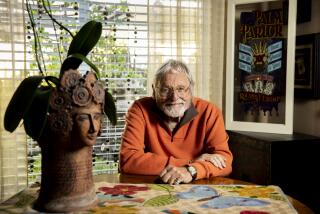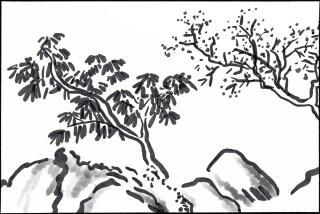Tell Me a Tale, Dad, and Donât Skip the Scary Parts
Every family floats on a raft of its own mythology. Iâm sure thereâs a technical term for this in the systems-theory literature, but what I mean is that every clan tells and retells its stories so often that they are eventually accepted as part of the gospel, whether apocryphal or not. This is a necessary defense against the treacherous rocks and eddies of life.
Joan Didion, who divines plots where others see only facts, once put it best: âWe tell ourselves stories in order to live.â
And then we tell stories about the stories in order to make sense of how we live. This, Iâd guess, is the impetus behind the current market glut of literary memoirs.
After reading a few of them, one thing is apparent: You canât make sense of how you live without making some kind of sense of how your parents have lived.
Today, which is Fatherâs Day, some thoughts about one kidâs dad and his stories.
*
By nature, my father is a storyteller. Sometimes his stories are true, sometimes not. Often, they are memorable snippets from a career spent immersed in literature, passages that have stuck with him over the years. âDo you remember the scene in. . . ?â he will ask, and of course, we donât because it is he, not us, who is the English professor; he, not us, who has taught the stuff year in and year out while we, the kids, only passed through the course once, if at all.
My father is a sometimes confounding mix of erudition and earthiness. He loves and quotes literature the way some men spout box scores, yet he cannot abide pretension. This, I suppose, is what you get when you transplant a farm boy from the grape fields to the groves of academe.
We used to beg him to tell us stories of his wayward youth, never tiring of hearing about what passed for fun in Fresno in the â40s: How he and his friends would stand on opposite curbs on a darkened street, yanking in great, overwrought gestures an imaginary chain across the street, so that any passing car would slam on its brakes to avoid hitting . . . what? Nothing.
When we were little, he had us going for years with the story of how he met our mother.
âI was walking down the beach carrying my surfboard with my hair all slicked back,â he used to say with a sly grin. âAnd your mother was lying there in a bikini. She looked at me and said, âHey, big boy. Why do you put that greasy kidsâ stuff on your hair?â â
We children thought this was absolutely hilarious for two reasons: Our parents met in Berkeley, hardly a place known for its seductive sun and surf. And it was delightfully inconceivable that our mother, who nearly became a nun and for whom the word âprudeâ may have been invented, would speak to any man in the style of a temptress quoting a hair product commercial.
Didnât matter. We loved the story and made our father tell and retell it.
Like all kids, though, we wanted to pick and choose the stories we were told. We wanted to skip past the scary parts and get to the happy endings.
*
Twenty years ago, when I was far from ready to accept that, like any human being, my father has failings large and small, he took me to Mexico to visit my brother, who was spending his junior year of high school in a town called San Luis Potosi. I had not seen Peter in more than a year, since he had left for Mexico before I returned from my own year of study abroad.
I missed my little brother terribly and the trip was a generous gesture on the part of my father, meant to make up for what had been a painful time for our family.
My parents had split up the year before. They had dropped the bombshell, in fact, just days before I boarded a plane for France. It was both a trauma and a gift to be so far away from home at such an awful time.
On our mini-family reunion in Mexico, my father took the notion that he should explain himself. He wanted, he said, for us to know him, to understand him in a way that he had not been able to understand his own father before he died.
We must have responded positively, because he told us a different kind of story, one about marriage, about betrayal, about remorse. I did not admit it then, but I was not prepared to handle the gritty details of why a 23-year marriage that seemed to be working may have been on a collision course with divorce from the start.
I suppose I felt the way my daughter does after she begs for the story of the big bad wolf, then begs us to stop because itâs too scary.
Now, though, I respect the impulse that moved him to confession. And I value the lesson he imparted: In life, as in literature, you wonât understand the story if you skip past the scary parts.
* Robin Abcarianâs column appears on Sundays and Wednesdays. Readers may write to her at the Los Angeles Times, Life & Style, Times Mirror Square, Los Angeles, CA 90053.
More to Read
Sign up for our Book Club newsletter
Get the latest news, events and more from the Los Angeles Times Book Club, and help us get L.A. reading and talking.
You may occasionally receive promotional content from the Los Angeles Times.









